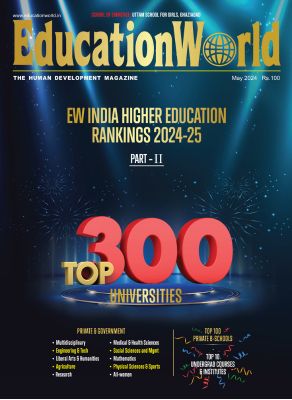Battles half won: India™s improbable democracy; Ashutosh Varshney; Penguin books; Rs.599; Pages 415
WHEN THE 525 PRINCELY states of the Indian subcontinent attained independence from the British Raj 67 years ago, most political pundits ” especially foreign savants ” predicted that the Centre wouldn™t hold and the newly cobbled together improbable Indian democracy would collapse into anarchy or morph into a military dictatorship. Well, they™ve been proved wrong and despite almost all the nation states of the post-colonial world obligingly proving them right, India has remained a united albeit imperfect, democracy.
Currently in the midst of its 16th general election, it™s almost certain there will be smooth transfer of political power after the closure of voting on May 16 ” a scenario which still prompts astonishment the world over, not least in neighbouring Pakistan.
However, according to Dr. Ashutosh Varshney, professor of international studies and social sciences at Brown University and author of several insightful books on India including Ethnic Conflict and Civic Life: Hindus and Muslims in India (2002) and India in the Era of Economic Reforms (1999), the development battles of the world™s most populous democracy have been œhalf won. œIndependent India was born with multiple projects. Three projects were specially important: securing national unity; bringing dignity and justice to those at the bottom of the social order; and eliminating mass poverty, writes Varshney in the first sentence of his new book. A collection of updated and revised essays published in various newspapers and journals, it offers penetrating insights into why despite substantially failing to attain two of the three critical objectives of the Indian state cited above, œfor the first time in human history, a poor nation has practised universal franchise for so long.
These essays provide a contrarian™s point of view. Therefore for the surprising longevity of Indian democracy, Varshney gives credit to a popular hate figure and villain of Indian society ” the politician. According to him, the longevity of Indian democracy is less attributable to the reportedly ancient village democracies of India, culture or economy than to the willingness of the country™s political class cutting across all parties, to observe the basic rules of electoral democracy.
But the best that can be said about the two other critical projects/objectives ” providing social justice and dignity to the sizeable majority at the base of Indian society™s inherently iniquitous caste hierarchy, and eliminating mass poverty ” the battle has been only half won. Yet even on these parameters, if north and south India are separately assessed to measure progress, the scheduled and particularly OBCs (other backward castes) in peninsular India have recorded a greater measure of social and economic progress than in the north, where caste prejudice and oppression are more firmly entrenched.
Varshney ascribes this more than half battle won by the historically oppressed lower castes in south India to the early electoral seizure of political power by Dravidian and other OBC parties and their aggressive practice of reservation or affirmative action ” a bugbear of middle class India. In an evocative, must-read essay titled ˜Two banks of the same river? Social orders and entrepreneurialism in India,™ drawing upon a comparison of the famous French political scientist Alexis de Tocqueville in his book Democracy in America (1830) between the backward, listless state of Kentucky which practiced slavery, and the progressive, flourishing riparian state of Ohio which abolished it, Varshney makes the case that the 4.32 percent annual per capita income growth of the southern states (cf. 2.12 percent in the north) is the result of erosion of the caste system which has broken the œtraditional link between caste and occupation.
Yet even if the critical battles of securing the integrity of the country and bringing dignity and self-respect to the subaltern classes have been half won, Varshney concedes that the third critical battle for eliminating mass poverty has been less than half won. In an engrossing end-of-book essay titled ˜Why have poor democracies not eradicated poverty?™ the learned author provides insightful answers.
In democracies political parties and governments are always under pressure to subscribe to direct methods of poverty alleviation ” doles, subsidies, food-for-work programmes such as MGNREGA etc ” instead of indirect investment in education, health, and sanitation which yield permanent long-term benefits in terms of developing human capital.
Secondly, the poor in third world democracies tend to be divided by ethnicity, tribalism, caste etc rather than united by class. Hence the poor seldom vote as a block when electing governments because considerations of dignity and social justice drive electoral passions.
In the end, while endorsing the country™s belated economic reforms, Varshney is steadfast in his belief that the development goals of the improbable democracy that is India have only been partially achieved. œIndia™s post-independence leadership had undertaken to abolish mass poverty. That pledge remains only partially redeemed, he concludes.
It™s a failure not only of the political class, but of the establishment and the middle class which has to be righted expeditiously. Or else even the half won gains of post-independence India™s unique democratic experiment could be lost.
Dilip Thakore
Poor execution
Karma kurry for the mind, body, heart & soul; Jeroninio Almeida &Jyoti Nanda; jaico books; Rs.250; Pages 228
JERONINO ALMEIDA IS A livewire Delhi-based social activist and promoter of iCONGO (Indian Confederation of NGOs) which funds and encourages NGOs involved with voluntary work in all fields of human development. Since 2004, iCONGO has been conferring its Karmaveer Puraskaar awards to social activists and do-gooders identified by its affiliated Right Every Wrong movement and the Karma Mitra Foundation. œThe core objective of these movements is promoting individual social responsibility wherein each one of us becomes and leads the change we want to see in our society, writes Almeida in the prologue. œThe desired outcome of this book is to inspire more and more people to become everyday heroes who can make a difference in our world.
But unfortunately between the laudable objectives of Almeida and co-author Jyoti Nanda (an educationist currently with Macmillan) and their execution, there™s a long shadow. Some of the stories are truly extraordinary, such as the biography of Chewang Norphel who collects summer waters from glaciers in Ladakh; a Bengali vegetable seller who built a hospital for the poor in her town; a samaritan who looks after scores of neglected elderly people, and a bed-ridden Kashmiri youth who has made significant strides in fighting for the rights of the disabled in Jammu and Kashmir. These are indeed inspiring factual stories of common ” even poor ” people who step out of despair and work for the good of their communities.
Yet this compilation starts with case histories of page 3 celebrities such as major Infosys shareholder Rohini Nilekani, actress Gul Panag and high-profile journalist Anita Pratap, who™s married a Norwegian ambassador ” hardly ˜ordinary people™.
Moreover, these inspirational accounts have been outsourced to inept writer/biographers, who seem to have written literal translations of simplistic stories originally penned in vernacular languages. Therefore odd turns of phrase, words used in the wrong sense and bad grammar diminish the impact of stories which have the potential to uplift and inspire. One poor old lady (the recipient of a philanthropic largesse) is described as having œbeady eyes, while œugly face of stigma and discrimination is an unseemly description of an AIDS patient.
Indeed, these narratives would have sounded better coming from the achievers themselves, particularly in the case of Gul Panag, where the actress™ quotes make much more interesting reading than the school-essay style her biographer seems to favour.
If this is the Indian version of Chicken Soup for the Soul, it suffers from many of the flaws of Indian remakes ” notably poor execution and a tendency to ramble. For instance, the history of human rights activist Mallika Dutt and the improbable love story of Rumanian Princess Francoise Sturdza and Gregory David Roberts, author of the bestseller Shantaram, could have been narrated to great dramatic effect.
It™s easy to be cynical about such simplistic, facile Reader™s Digest genre of valiant stories. But there™s no denying that in a vastly under-educated nation where the great majority are under-paid and have little time to read even to be inspired, they serve a useful social purpose. The blame for the corny turns of phrase, typos and non sequiturs must be laid at the door of the editors of Jaico who should have done a more thorough job of shaping and finalising these motivating stories that need to be told.
Radhika Sangam


























